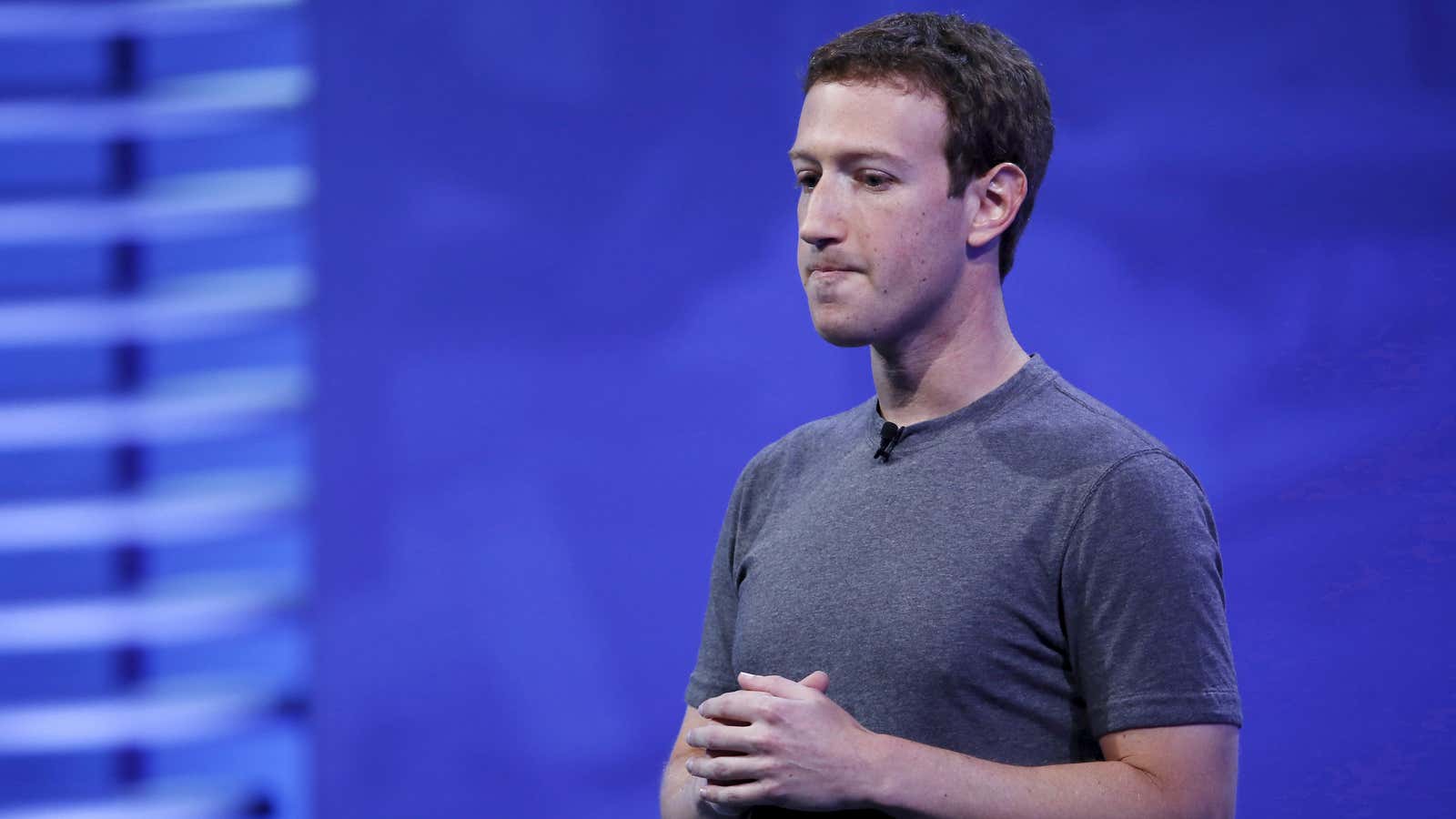The CEO of Facebook broke his long silence on Wednesday, five days after a huge scandal broke about political consulting firm Cambridge Analytica and its illicit use of Facebook user data.
The TL;DR of his agonizingly late-to-the-game note was that Cambridge Analytica’s misdeeds were the result of Facebook flaws that were patched long ago: “The good news is that the most important actions to prevent this from happening again today we have already taken years ago.”
Zuckerberg also announced several other steps to bulk up Facebook’s protections of user privacy, restrict outside developers’ access to personal information, and make sure that users are aware of how their data is being accessed.
In a subsequent barrage of interviews on Wednesday, Zuckerberg expanded on his statement, telling CNN he was “really sorry this happened,” and acknowledged that perhaps Facebook needed to be more heavily regulated. There was a flash of emotion—he began to tear up when he talked about “building something my girls are gonna grow up and be proud of me for”—but as a whole his comments were all about logic and process.
The systematic, point-by-point (and surely heavily lawyered) response to the worst crisis in Facebook’s history has virtually no chance of calming the outrage or quelling the disgust that many Facebook users are feeling this week. That’s because Facebook’s success was never predicated on the rational benefits of its gargantuan social network; it was always about how Facebook makes you feel.
Facebook has always lived at the intersection of engineering and psychology. Its system of likes and shares is ruthlessly designed to hack our brains and tap into our unconscious need to receive affirmation: “short-term, dopamine-driven feedback loops,” in the words of Chamath Palihapitiya, Facebook’s former vice president of user growth.
Tapping into people’s unconscious desires and fears to build a business is nothing new, of course. The documentary Century of the Self talks about how Sigmund Freud’s nephew, Edward Bernays, adopted psychological techniques to tap into irrational group behavior and build consumer culture in the decades after World War I—not least the advertising business upon which Facebook’s empire rests.
From Zuckerberg’s perspective, the whole scandal must feel a little unfair. Most Americans probably couldn’t even explain in detail what exact misdeed Cambridge Analytica carried out, or how Facebook may have abetted it.
Even if you’ve fully digested the details, Cambridge Analytica’s use of personal data for the Trump campaign in 2016 wasn’t significantly different than what the Obama campaign pioneered four years earlier—although the machinations that Cambridge Analytica used to obtain the data were unquestionably much sketchier.
But if you live by tapping into the irrational desires of large groups, you die by them too. That’s why it’s hard to imagine how Zuckerberg’s hyper-rational response, complete with a three-point plan, could do much to reverse the tide of ill will that has engulfed Facebook this week.
Facebook thrived because it made billions of people feel good. Increasingly, it makes a lot of them feel bad. A scandal that reinforces that icky feeling of exploitation can’t be defused by a leader who is unable to see the problem.
(This post has been updated.)
